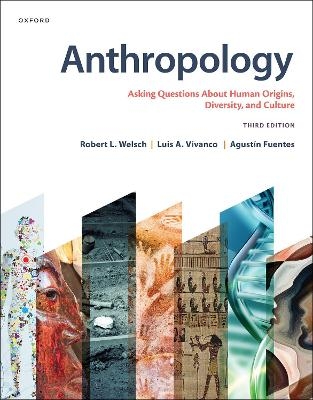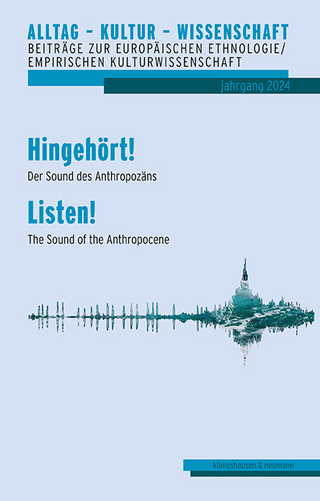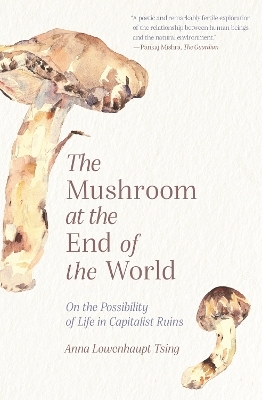
Anthropology
Oxford University Press Inc (Verlag)
978-0-19-766696-8 (ISBN)
- Lieferbar (Termin unbekannt)
- Versandkostenfrei
- Auch auf Rechnung
- Artikel merken
Robert L. Welsch is retired from Franklin Pierce University, where he taught from 2008-2019. Previously, he taught at Dartmouth College, from 1994-2008. Luis A. Vivanco is Professor of Anthropology and Chair of the Anthropology Department at the University of Vermont. Agustin Fuentes is Professor of Anthropology at Princeton University.
Contents
Letter from the Authors
About the Authors
Preface
Acknowledgments
PART I. THE ANTHROPOLOGICAL PERSPECTIVE
1. Anthropology
Asking Questions About Humanity
How Did Anthropology Begin?
The Disruptions of Industrialization
The Theory of Evolution
Colonial Origins of Cultural Anthropology
Anthropology as a Global Discipline
What Do the Four Subfields of Anthropology Have in Common?
Culture
Cultural Relativism
Human Diversity
Change
Holism
How Do Anthropologists Know What They Know?
The Scientific Method in Anthropology
When Anthropology Is Not a Science: Interpreting Other Cultures
How Do Anthropologists Put Their Knowledge to Work in the World?
Applied and Practicing Anthropology
Putting Anthropology to Work
What Ethical Obligations Do Anthropologists Have?
Do No Harm
Take Responsibility for Your Work
Share Your Findings
A WORLD IN MOTION: George A. Dorsey and the Anthropology of Immigration in the Early Twentieth Century
CLASSIC CONTRIBUTIONS: E. B. Tylor and the Culture Concept
DOING FIELDWORK: Conducting Holistic Research with Stanley Ulijaszek
THE ANTHROPOLOGICAL LIFE: Anthropologists Are Innovators
THE ANTHROPOLOGICAL LIFE: Key Characteristics of Anthropologists in the Workplace
2. Culture
Giving Meaning to Human Lives
What Is Culture?
Elements of Culture
Defining Culture in This Book
If Culture Is Always Changing, Why Does It Feel So Stable?
Symbols
Values
Norms
Traditions
How Do Social Institutions Express Culture?
Culture and Social Institutions
American Culture Expressed Through Breakfast Cereals and Sexuality
Can Anybody Own Culture?
THE ANTHROPOLOGICAL LIFE: Cultural Anthropology and Human Possibilities
CLASSIC CONTRIBUTIONS: Franz Boas and the Relativity of Culture
ANTHROPOLOGIST AS PROBLEM SOLVER: Michael Ames and Collaborative Museum Exhibits
3. Human Biocultural Evolution
Emergence of the Biocultural Animal
Life Changes. But What Does It Mean to Say It Evolves?
A Brief Primer on the Rise of Evolutionary Thinking
Differentiating Evolution From Simple Change
What It Means to Have Common Ancestry
Why Evolution Is Important to Anthropology . . . and Anthropology to Evolution
What Are the Actual Mechanisms Through Which Evolution Occurs?
The Modern Synthesis
Basic Sources of Biological Change: Genes, DNA, and Cells
Genetic Mechanisms of Evolution
Non-Genetic Mechanisms of Evolution
How Do Biocultural Patterns Affect Evolution?
Human Inheritance Involves Multiple Systems
Evolutionary Processes Are Developmentally Open-Ended
The Importance of Constructivist Evolutionary Approaches for Biocultural Anthropology
Are Modern Humans Evolving, and Where Might We Be Headed?
The Impact of Disease on Evolution
Cultural Practices, Morphology, and Evolution
Looking to the Future
Global Population and Human Density
Genetic Manipulation
Climate Change and Adaptive Behavioral Patterns
CLASSIC CONTRIBUTIONS: Clyde Kluckhohn and the Role of Evolution in Anthropology
THE ANTHROPOLOGICAL LIFE: The Biocultural Awesomeness of Awe
ANTHROPOLOGIST AS PROBLEM SOLVER: Clarifying the Biocultural and Evolutionary Dimensions of Obesity
4. Cross-Cultural Interactions
Understanding Culture and Globalization
Are Cross-Cultural Interactions All That New?
Is the Contemporary World Really Getting Smaller?
Defining Globalization
The World We Live In
What Are the Outcomes of Global Integration?
Colonialism and World Systems Theory
Cultures of Migration
Resistance at the Periphery
Globalizing and Localizing Identities
Doesn't Everyone Want to Be Developed?
What Is Development?
Development Anthropology
Anthropology of Development
Change on Their Own Terms
If the World Is Not Becoming Homogenized, What Is Actually Happening?
Cultural Convergence Theories
Hybridization
CLASSIC CONTRIBUTIONS: Eric Wolf, Culture, and the World System
THE ANTHROPOLOGICAL LIFE: Coldplay and the Global Citizen Festival
A WORLD IN MOTION: Instant Ramen Noodles Take Over the World
DOING FIELDWORK: Tracking Emergent Forms of Citizenship with Aihwa Ong
PART II. BECOMING HUMAN
METHODS MEMO: How Do Anthropologists Study Human and Primate Biological Processes?
5. Living Primates
Comparing Monkeys, Apes, and Humans
What Does It Mean to Be a Primate, and Why Does It Matter to Anthropology?
What It Means to Be a Primate
The Distinctions Between Strepsirrhini and Haplorrhini
Primatology as Anthropology
What Are the Basic Patterns of Primate Behavioral Diversity, and Under What Conditions Did They Develop?
Common Behavior Patterns Among Primates
The Emergence of Primate Behavioral Diversity
How Do Behavior Patterns Among Monkeys and Apes Compare with Humans?
The Lives of Macaques
The Lives of Chimpanzees and Bonobos
So How Do They Compare With Us?
What Does Studying Monkeys and Apes Really Illustrate About Human Distinctiveness?
Primate Social Organization and Human Behavior
We Have Culture. Do They Too?
THE ANTHROPOLOGICAL LIFE: So You Want to Work With Primates?
DOING FIELDWORK: The Ethics of Working with Great Apes
CLASSIC CONTRIBUTIONS: Sherwood Washburn and the New (Integrative) Physical Anthropology
METHODS MEMO: How Do Anthropologists Study Ancient Primates and Human Origins?
6. Ancestral Humans
Understanding the Human Family Tree
Who Are Our Earliest Possible Ancestors?
Our Earliest Ancestors Were Hominins
The Fossil Record of Hominins in
The Three Hominin Genera
Who Is Our Most Direct Ancestor?
What Did Walking on Two Legs and Having Big Brains Mean for the Early Hominins?
The Benefits of Upright Movement
The Effects of Big Brains on Early Hominin Behavior
Who Were the First Humans, and Where Did They Live?
Introducing Homo erectus
The Emergence of Archaic Humans
Who Were the Neanderthals and Denisovans?
Contemporary Humans Hit the Scene
How Do We Know If the First Humans Were Cultural Beings, and What Role Did Culture Play in Their Evolution?
The Emerging Cultural Capacity of H. erectus
Culture Among Archaic Humans
Social Cooperation and Symbolic Expression
THE ANTHROPOLOGICAL LIFE: How to Think Like a Paleoanthropologist
ANTHROPOLOGIST AS PROBLEM SOLVER: Were We "Born to Run"?
CLASSIC CONTRIBUTIONS: Sarah Blaffer Hrdy, Helpless Babies, and the Evolution of Human Cooperation
A WORLD IN MOTION: Rethinking the Peopling of the Americas
7. Human Biodiversity Today
Understanding Our Differences and Similarities
In What Ways Do Contemporary Humans Vary Biologically?
Genetic Variation Within and Between Human Populations
Genetic Variation Is Tied to Gene Flow
Physiological Diversity and Blood Types
Disease Environments and Human Immunity
Why Do Human Bodies Look So Different Across the Planet?
Is Skin Really Colored?
Variations in Body Shape, Stature, and Size
Are Differences of Race Also Differences of Biology?
The Biological Meanings (and Meaninglessness) of "Human Races"
But Isn>'t There Scientific Evidence for the Existence of Races?
What Biocultural Consequences Do Social Phenomena Like Discrimination, Rapid Change, Nurturing, and So Forth Have on Human Bodies?
Eugenics: A Weak Theory of Genetic Inheritance
The Embodied Consequences of Being a Racialized Minority
How Do Humans Thrive?
CLASSIC CONTRIBUTIONS: Ashley Montagu and "Man's Most Dangerous Myth"
ANTHROPOLOGIST AS PROBLEM SOLVER: Jada Benn Torres and Reparational Genetics in the Caribbean
THE ANTHROPOLOGICAL LIFE: It Does, in Fact, "Take a Village:" A Biocultural Perspective
8. The Body
Biocultural Perspectives on Health and Illness
How Do Biological and Cultural Factors Shape Our Bodily Experiences?
Uniting Mind and Matter: A Biocultural Perspective
Culture and Mental Illness
What Do We Mean by Health and Illness?
The Individual Subjectivity of Illness
The "Sick Role": The Social Expectations of Illness
How and Why Do Doctors and Other Health Practitioners Gain Social Authority?
The Disease-Illness Distinction: Professional and Popular Views of Sickness
The Medicalization of the Non-Medical
How Does Healing Happen?
Clinical Therapeutic Processes
Symbolic Therapeutic Processes
Social Support
Persuasion: The Placebo Effect
How Can Anthropology Help Us Address Global Health Problems?
Understanding Global Health Problems
Anthropological Contributions to Tackling the International HIV/AIDS Crisis
ANTHROPOLOGIST AS PROBLEM SOLVER: Heidi Larson, Vaccine Anthropologist
A WORLD IN MOTION: Medical Tourism and Yemen
CLASSIC CONTRIBUTIONS: Paul Farmer and the Effort to Situate Global Health Problems in an Anthropology of Suffering
PART III. HUMANS AND THEIR MATERIAL WORLDS
METHODS MEMO: What Field Methods Do Archaeologists Use to Study the Human and Environmental Past?
9. Materiality
Constructing Social Relationships and MeaningsWith Things
Why Is the Ownership of Prehistoric Artifacts and Objects From Other Cultures Such a Contentious Issue?
Archaeological Excavation and Questions of Ownership
The Road to NAGPRA
Cultural Resource Management
How Should We Look at Objects Anthropologically?
The Many Dimensions of Objects
A Shiny New Bicycle in Multiple Dimensions
Constructing the Meaning of an Archaeological Artifact
How and Why Do the Meanings of Things Change Over Time?
The Social Life of Things
Three Ways Objects Change Over Time
How Archaeological Specimens Change Meaning Over Time
What Role Does Material Culture Play in Constructing the Meaning of a Community>'s Past?
Claiming the Past
The Politics of Archaeology
THE ANTHROPOLOGICAL LIFE: Working as an Ethnographic Collections Manager at the Field Museum
A WORLD IN MOTION: The Movement of Art In and Out of Africa
CLASSIC CONTRIBUTIONS: Margaret Conkey and the Gender Politics of Understanding Past Lives
METHODS MEMO: Why Is Carbon-14 So Important to Archaeologists?
10. Early Agriculture and the Neolithic Revolution
Modifying the Environment to Satisfy Human Demands
How Important Was Hunting to Prehistoric Peoples?
Taking Stock of Living Hunter-Gatherers
's Holistic, On-the-Ground Approach to Fighting Poverty
14. Sustainability
Environment and Foodways
Do All People See Nature in the Same Way?
The Human-Nature Divide?
The Cultural Landscape
How Do People Secure an Adequate, Meaningful, and Environmentally Sustainable Food Supply?
Modes of Subsistence
Food, Culture, and Meaning
How Does Non-Western Knowledge of Nature and Agriculture Relate to Science?
Ethnoscience
Traditional Ecological Knowledge
How Are Industrial Agriculture, Economic Globalization, and Climate Change Linked to Increasing Environmental and Health Problems?
Population and Environment
Ecological Footprint
Industrial Foods, Sedentary Lives, and the Nutrition Transition
Climate Change and Culture
Are Industrialized Western Societies the Only Ones to Conserve Nature?
Anthropogenic Landscapes
The Culture of Modern Nature Conservation
Environmentalism>'s Alternative Paradigms
CLASSIC CONTRIBUTIONS: Roy Rappaport's Insider and Outsider Models
ANTHROPOLOGIST AS PROBLEM SOLVER: Urban Black Food Justice with Ashanté Reese
A WORLD IN MOTION: Migrant Caravans, Global Warming, and Ecological Refugees
THE ANTHROPOLOGICAL LIFE: Careers in Sustainability
15. Power
Politics and Social Control
Does Every Society Have a Government?
The Idea of
| Erscheinungsdatum | 17.01.2024 |
|---|---|
| Verlagsort | New York |
| Sprache | englisch |
| Maße | 226 x 264 mm |
| Gewicht | 1565 g |
| Themenwelt | Sozialwissenschaften ► Ethnologie |
| Sozialwissenschaften ► Pädagogik | |
| Sozialwissenschaften ► Soziologie | |
| ISBN-10 | 0-19-766696-5 / 0197666965 |
| ISBN-13 | 978-0-19-766696-8 / 9780197666968 |
| Zustand | Neuware |
| Haben Sie eine Frage zum Produkt? |
aus dem Bereich


